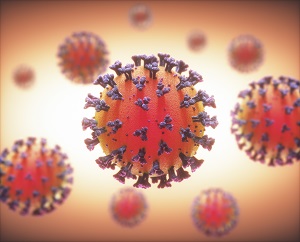MEDIA // ARTICLE

The COVID-19 Crisis: What Are Symptoms and What to do if You Think You Have it
March 30, 2020 at 3:00 PM EST.Unfortunately, individuals may be sick with coronavirus (COVID-19) for one to 14 days before ever developing known symptoms. However, you can help catch it early and prevent further spread by knowing the most common symptoms of COVID-19 are fever, tiredness, and a dry cough. Most individuals suffering COVID-19 symptoms report a cough, fever, tiredness, and difficulty breathing in the more severe cases.
If you are diagnosed with COVID-19 or are experiencing these symptoms, please follow the below steps to care for yourself and protect your loved ones:
- Stay home except to get medical care. Most individuals with the virus have a mild illness and are encouraged to recover at home.
- Call your doctor. Before travelling for medical care, call your doctor for recommendations. Do get emergency care if you have trouble breathing or other worrisome symptoms.
- Get some rest and stay hydrated. Just as with the regular flu, your body requires time to recover.
- Separate yourself from other people within your household as much as possible. Create a \“quarantine room\” and try to keep people and pets away from that room. Use a separate bathroom if possible.
- Continue to monitor your symptoms. Trouble breathing is the number one sign that you require in-person medical care. Other problematic symptoms include*:
- Persistent chest pain or pressure.
- b. Confusion or inability to arouse.
- Blue pallor, lips or face
About 80% of individuals recover from the virus without ever needing special treatment. More rarely, it can be serious and even fatal. Older individuals and people with medical conditions such as asthma, diabetes or heart disease may be more vulnerable to suffering complications and falling severely ill.
*This is not a comprehensive list of problematic symptoms. Please communicate with your healthcare provider for more information on what symptoms to watch for.
